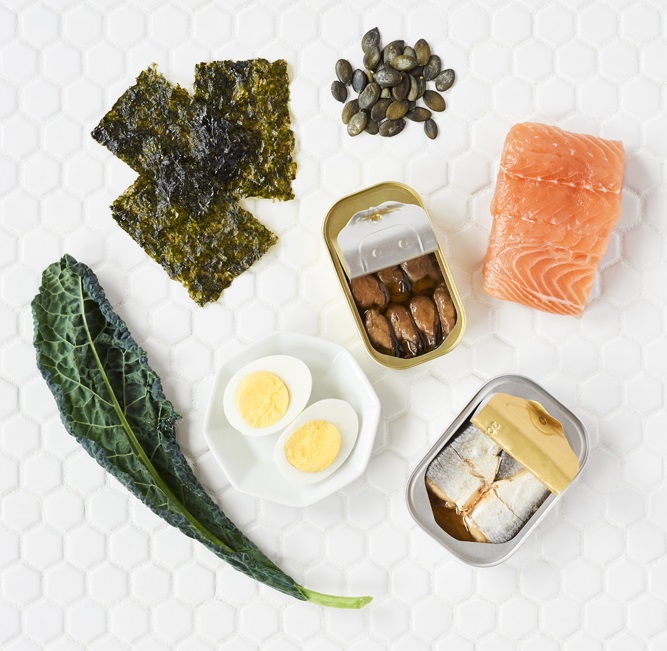April 3rd, 2018
Saving Money & Eating Better at Home
How many times per week do you eat outside food? Not just restaurants, but coffee and and snack runs, forgot-to-pack-a-lunch meals, or picking up prepared foods at the grocery store on your way home? The annual Canada’s Food Price Report by Dalhousie University and the University of Guelph predicts that Canadians will increase their family spending on food by $348 this year, and the majority of that will go to restaurants and ready-to-eat foods. In fact, the average family will likely spend 30% of their food budget on foodservice! That seems high right? But let’s face it– when you’re busy family, running everywhere between work, home and activities, “not cooking” or shopping and having things delivered is an appealing option. Here are some tips for preparing foods to REDUCE costs yet keep meals healthy. It may seems like a chore, but food prep and cooking with your family CAN BE QUALITY TIME together, so here’s a few reminders of why it’s important.
Plan, Plan Ahead
Thinking about what to make for dinner the night you need it add a LOT of stress to the end of the day. Planning ahead on weekend days and one weeknight takes time but is SO WORTH it. Slow down and start a habit of making a meal plan for the week, at least 1 x week for 1 hour. Then plan to shop for 1 to 1.5 hours weekly to start, some families may need a mid-week shop. It doesn’t have to be iron-clad, but having a general idea of what you’re going to make will help you to grocery shop more efficiently, waste less and be prepared when the temptation to hit a restaurant for last-minute dinner arises. Here’s what to do:
- Sit down and map it out WITH your family. Get each member of the family involved on what they want to eat in their lunches and dinners
- Ask yourself what can be prepared in advance or what you can make extra of to save on time later
- Turn on some music and get to it. Put a 1 hour timer on to help time-block.
- Once you get home from the store, set aside some time to cut up veggies, portion lunch snacks, marinate meat/beans/tofu/poultry or fish . The more you can do in advance, the less you have to do on a busy weeknight.
Don’t Break the Bank
After march break and before summer camps and vacations start is a crucial time of year that a lot of families are trying to lower costs. The Food Price Report indicates that restaurant prices are likely to rise much more than other foods. Paying for convenience once in awhile can be helpful in a pinch, but it quickly adds up to a ton of money if it becomes a habit. Here’s some basics on spending less:
- Having a plan is a great way to keep your costs in check. Keep a list of things you always need on your fridge
- Always shop with a list and buy only what is on the list
- To REALLY save, use your phone calculator to tally while you shop and cash to pay
- Who carries that much cash?? I know, BUT it definitely effectively limits what you can purchase on-the-spot
- Use an app to compare prices and go to the store that has the most items on your list on sale ( not multiple stores too time consuming)
- Check for bulk discounts and split with another family or freeze extra portions
- Keep in mind lower-cost alternatives for things you don’t care as much about (i.e. garbage bags)
- One of the other largest trends of the year are plant-based proteins such as beans, lentils, nuts and tofu, which are generally much cheaper than meat and have tons of health benefits too. Try substituting half lentils in a ground meat dish or adding tofu to your stir-fry. Your body and wallet will thank you!
The newest trend in prepared foods is delivered meals or meal-kits that offer to provide customers with ready-to-eat meals or 1-batch recipes to prepare themselves. If you can afford these, and are choosing a reliable vendor with healthy options, that can work for some families. But learn from the experience; with planning you can have similar or identical meals, prepared at home on a much lower budget.
Get the family in on it
It can be stressful emotionally if you’re the person who does the majority of cooking in your household. When family complains or doesn’t respond the way you expect to your hard work, it’s demoralizing. But good news– your children are very capable of helping out with some kitchen tasks and it can result in more confidence, skill development and a better relationship with food for them as well! Get your kids involved in choosing healthy foods, performing age-appropriate food prep (think packing lunches, bringing you ingredients or tools, mixing, etc), and helping to clean up. This encourages kids to learn more about what they’re eating, making them more likely to eat it if they’re challenging, teaches them LIFE skills, and gives you some often hard to find QUALITY family time. And if it reduces the workload for you… well that’s an excellent added benefit too!
Emergency Reserves
That thing attached to your fridge is the best weapon in avoiding unnecessary food spending. Stock your freezer and cupboards with things to help you pull together last minute meals. Try some of these tips to use storage to your advantage:
- When you have time, freeze extra portions of a prepared meal.
- Marinate and freeze meats. If you have a slow cooker, put all of the ingredients you might need for a stew or roast into freezer bags, so that you can throw them in before work on a day where you don’t have time to get groceries.
- Always keep a extra bags of frozen veggies stocked. You can combine this with your dry ingredients- whole wheat pasta or rice, cans of beans, lentils, etc to create a healthy meal in no time.
Make healthy choices when you choose to eat out.
Sometimes, you’re going to opt for the convenient choice. So when you do, make it as purposeful and as healthy as possible. Choosing a day that it would be easier or more pleasant to eat out or pick food up means that you have a plan in place, you can choose a place that you will really enjoy rather than the most convenient, and you can appreciate it more. If you might have to make a last-minute decision, plan a list of cost-effective places (hopefully health ?) so that you choose those easily over fast food. Remind your kids to enjoy the moment and the meal as an occasional treat, rather than a regular habit. Forget feeling “parent” guilty (it’s a learned behaviour!) Just enjoy the meal out and plan to have the next day’s meal at home.
Why Mealtime is QUEEN
Whether you are eating at home or at a restaurant and no matter who made the food, aim to eat together as a family as much as possible. Regular family mealtimes have tons of positive benefits for infants all the way through their teenage years; better eating patterns, increased sense of hungry and fullness and improved performance in school and mental health. Eating together as a family has been shown in studies to be protective against high-risk behaviours such as self-harm, eating disorders and drug use among children and teens. Get rid of distractions- no phones, tablets or television, but keep things calm with music. Share news about your day, plans dreams and aspirations, when else do you have everyone’s attention?!

